Until last week, the temperature was high enough to feel hot.
This morning, the first sub-zero cold was also recorded in Seoul.
Let's look at the volatile weather causes across the seasons and the weather prospects in the future.
Kim Min-kyung, a YTN weather and disaster reporter, is here. How are you?
It was cold all over the country today, right? How cold was it?
[Reporter]
This morning, the temperature in Seoul was minus 0.7 degrees Celsius, marking the first time this fall.
The temperature dropped by 8 degrees from yesterday morning, the lowest this fall.
Daegwallyeong fell to minus 6.1 degrees Celsius, while Hyangrobong Peak in Goseong, especially fell to minus 10 degrees Celsius and Seolcheonbong Peak in Muju fell to minus 9.4 degrees Celsius.
Except for Jeju Island and parts of the south, it fell below zero nationwide.
The wind was also strong, so the wind temperature was lower.
It was minus 4.4 degrees in Seoul.
Seolcheonbong Peak in Muju was minus 19.4 degrees Celsius, approaching minus 20 degrees Celsius.
[Anchor]
A cold wave warning was also issued.
It was the first time this fall, right?
[Reporter]
That's right. Shall we look at the screen?
The area painted dark blue is the area where the cold wave warning and the combination is the area where the cold wave warning has been issued.
Cold wave warnings were issued in Muju, Jeollabuk-do, Jangsu, and Jinan, and cold wave warnings were issued in Gangwon, Chungcheong, Honam, Gyeongnam, and Jeju.
The cold wave warning is the first this fall, but a warning was issued once in the mountains of northern Gangwon Province on the 19th of last month.
However, this is the first time that it has been lowered in so many inland places.
It was lowered more than a week later than last year.
[Anchor]
You showed a map of the area where the cold wave warning was issued, but wasn't it colder in the central part of the country?
Seoul, the Seoul metropolitan area.
[Reporter]
That's right. It's because of the cold wave warning standard.
I'll explain it by looking at the graphic.
There are two conditions for issuing a cold wave warning.The first condition is that the minimum temperature in the morning must first fall by more than 10 degrees from the previous day.
And the temperature should be below 3 degrees.
It should be more than 3 degrees below normal temperatures.When all three are satisfied, a cold wave warning is issued. It usually falls from late autumn to early winter and early spring.
The second is mainly in the middle of winter.
When the morning minimum temperature is below minus 12 degrees Celsius, it is predicted that it will continue for more than two days.
Therefore, it is lowered to warn in advance when the temperature drops sharply or the extreme cold is expected for a long time.
The special report is made in advance when expected, so it may be slightly different from the actual observation results.
Comparing Seoul, where the cold wave warning was not issued, Busan, where the warning was issued today, and Muju, where the warning was issued, Seoul has already decreased by 8 degrees from yesterday to yesterday, so Seoul has dropped by 8 degrees, Busan by 10 degrees, and Muju by 15 degrees.
Therefore, the temperature in the central and northern parts of Seoul has decreased twice, and the southern part has fallen significantly at once.
[Anchor]
If the cold wave warning has been lifted like this, is the cold over now?
[Reporter]
The fact that the cold wave warning has been lifted can be seen as the Korea Meteorological Administration's judgment that the biggest crisis has passed. The crisis has passed, but even though it is midday, most parts of the country remain below 10 degrees.
Until tomorrow morning, 0 degrees in Seoul, -4 degrees in Paju, and -5 degrees in Cheorwon and Daegwallyeong, similar to today's cold will continue.
However, the temperature is expected to rise 3 degrees Celsius higher than today during the day tomorrow, and the cold is expected to cool down as temperatures recover from previous years.
[Anchor]
But until the weekend, there were a lot of people wearing short sleeves during the day.
But why is it so cold all of a sudden?
[Reporter]
This is because cold air below 20 degrees Celsius came down to Korea 5km above the north.Earlier, I told you that the temperature in Seoul has dropped twice.
The cold air from the upper layer came down twice, and the first cold wave that came down between the weekends was a little weak in intensity, so it did not reach the south and was in the middle.
This time, when the temperature dropped by about 8 degrees Celsius in only some areas, the intensity of the cold air was strong, and the temperature dropped significantly even in the south.
[Anchor]
But this cold is not just the temperature lowered, but the wind is also quite strong.
[Reporter]
That's right.
When the cold air comes down from the north to the south, it doesn't fly like an airplane, but because of its heavy nature, it sinks from the top to the ground.
So, to put it simply, it's like when you spray ink into a glass cup of water, the ink slowly sinks down.
I'll explain it to you while looking at the screen.
It's a barometer about 5km above the sky.
Cold air comes down from the northwest like this, but the north wind blows like this, and the cold air comes down like this, and the north wind blows like this, and the north wind blows like this.
If you look at the ground weather map during the same period, as I said earlier, the cold air is heavy and sinks, so high pressure that is marked H on the ground develops, and on the contrary, low pressure develops in the northeast.
You can see that this line near the Korean Peninsula is denser than other parts.In
the narrower the interval between the isobaric lines, the stronger the wind becomes, and so the wind becomes stronger between the high and low pressures.
At one point today, there was a typhoon-like gust of 30m per second in Sinan, Jeollanam-do.
In addition to the west coast, where special warnings were issued, strong winds of more than 15 meters per second were blowing nationwide.
[Anchor]
It was so cozy last week, but it suddenly got cold, so it feels colder, how is it compared to the average year?
[Reporter]
That's right. In fact, today's temperature is not much different compared to the temperature at this time in previous years.
The temperature in Seoul this morning was minus 0.7 degrees.
The average temperature was 1.9 degrees, which was too cold, but there was only a difference of 3 degrees. However, since the average temperature was significantly above 7-10 degrees Celsius until last weekend, it felt colder due to a sudden large temperature change.
This month, Korea was frequently affected by mobile high pressure, so the temperature was greatly increased by the sun during the day due to the frequent warm southern winds and sunny days.
In fact, it is not an unusual phenomenon that the cold has appeared once in a while since late autumn.Do you remember that it rained every weekend in the spring of
?
This is because cold air comes down periodically, just as it rained periodically, as the high and low pressures alternately pass through.
Samhansaon, which is usually referred to in winter, was also made for the same reason.
As we enter the era of the climate crisis, the standardized seasonal pattern is now gradually breaking to the point where the term "nine 11 temperatures" was created last year due to warming and other reasons.
[Anchor]
Actually, until last week, mosquitoes were mentioned on social media.
If it gets this cold this week, are mosquitoes okay now?
[Reporter]
Last week, I woke up at dawn because a mosquito buzzed in my ear.
Usually, when there is a lot of precipitation and humidity, the number of mosquitoes tends to increase and the lifespan tends to be longer.
This year, the temperature is so high in autumn that mosquitoes are active until late.
Mosquitoes are usually difficult to operate in cold weather below 13 degrees, but they can absorb blood if it exceeds 13 degrees.
It is difficult to see it outdoors because the temperature is low, but mosquitoes staying inside such underground structures or indoors flow into the house by stairs or elevators, so if the temperature and environment are maintained, mosquitoes can be seen until autumn and early winter.
[Anchor]
Really?
Then if it gets cozy again, will mosquitoes appear again?
[Reporter]
There is a high possibility of that.
[Anchor]
I see.
Be careful.
So far, we've been with Kim Min-kyung, a weather disaster reporter.
Thank you.
※ 'Your report becomes news'
[Kakao Talk] YTN Search and Add Channel
[Phone] 02-398-8585
[Mail] social@ytn.co.kr
[Copyright holder (c) YTN Unauthorized reproduction, redistribution and use of AI data prohibited]
Weather
More- [Weather] Seoul 0℃ tomorrow... It starts raining during the day in Jeju Island.
- [Weather] The changing season between the weekends, 'short-sleeved → padded jacket'...A mess of weather, what's the cause?
- [Weather] Seoul 0℃ tomorrow, most of them below zero...Normal temperatures are likely to rise from daytime.
- [Weather] Cold wave warning lifted...Seoul's First Freezing Zone, It's Cold Until Tomorrow Morning

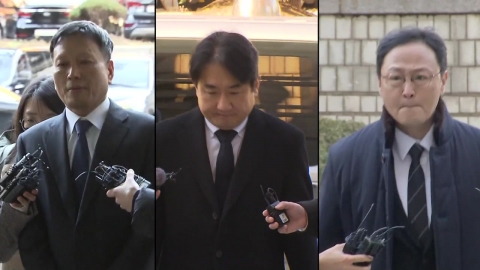
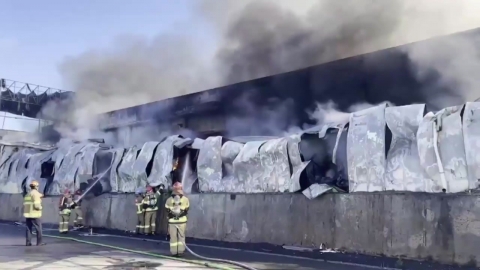
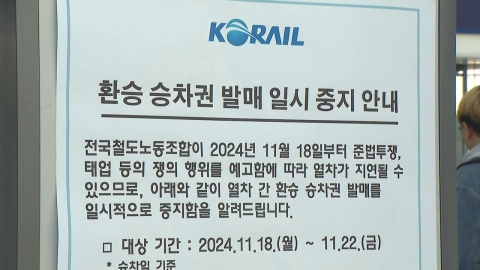
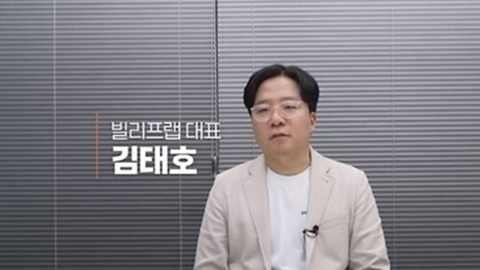


![[G-Star 2024] 210,000 people visited G-Star, "Successful Finishing"](https://image.ytn.co.kr/general/jpg/2024/1118/202411181130300591_h.jpg)
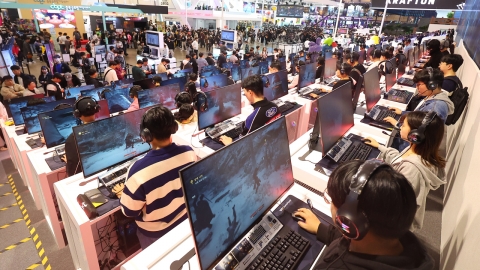
![[G-Star 2024] HiveIM's first outing raises expectations for new works](https://image.ytn.co.kr/general/jpg/2024/1115/202411151733271198_h.jpg)